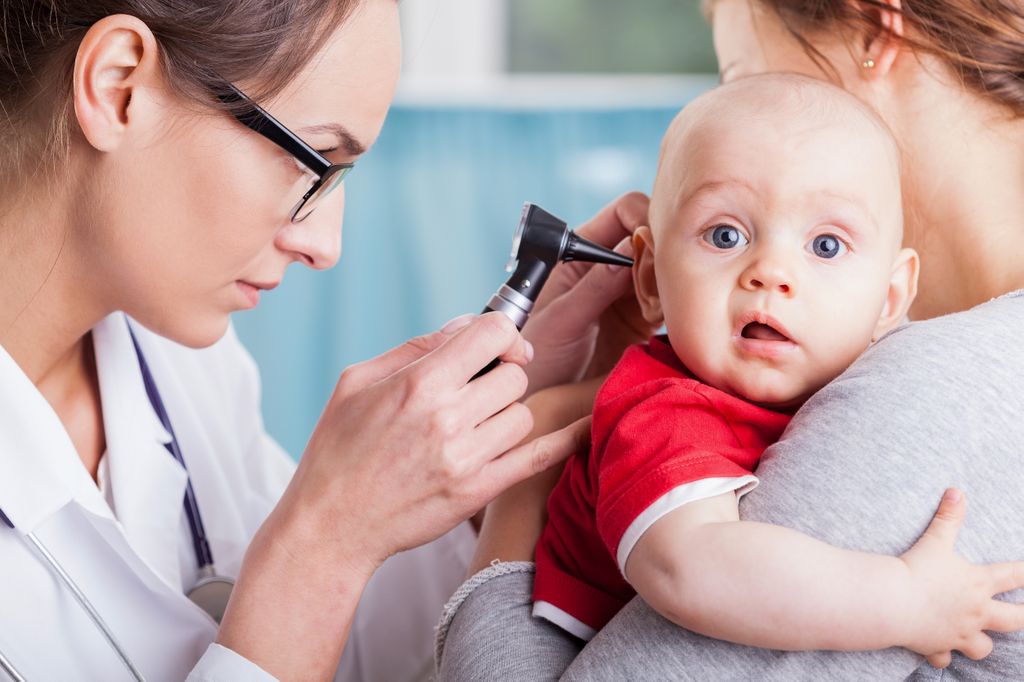Understanding Hearing Loss in Children: Causes, Signs & Next Steps

Hearing plays a crucial role in a child’s ability to speak, learn, and connect with others. When hearing loss goes undetected or untreated, it can interfere with key developmental milestones. At SightMD, we’re committed to helping families understand the signs of hearing loss in children and providing solutions that support better outcomes.
This guide explores the most common causes of hearing loss in children, how to recognize it early, and what steps you can take to protect your child’s hearing and development.
What Is Hearing Loss in Children?
Hearing loss in children refers to a reduced ability to hear sounds clearly, whether due to problems with the outer, middle, or inner ear—or the nerves that carry sound to the brain. It can affect one or both ears, and may be temporary or permanent.
There are three primary types of hearing loss in children:
- Mixed Hearing Loss: A combination of both conductive and sensorineural types.
- Conductive Hearing Loss: Caused by obstructions or malfunctions in the outer or middle ear (e.g., fluid, earwax, or infection).
- Sensorineural Hearing Loss: Results from damage to the inner ear or auditory nerve.
What Causes Hearing Loss in Children?
Hearing loss can be congenital (present at birth) or acquired (developing later in childhood). Understanding the potential causes helps inform how we treat and, in some cases, prevent hearing issues.
Top Causes of Hearing Loss in Children:
- Genetic factors or family history of hearing loss
- Infections during pregnancy (e.g., rubella, cytomegalovirus)
- Premature birth or low birth weight
- Chronic or recurrent ear infections (otitis media)
- Excessive noise exposure (e.g., loud music, fireworks)
- Certain medications that can damage the ear (ototoxic drugs)
- Head trauma or skull fractures
- Structural abnormalities in the ear
- Meningitis or other severe infections during infancy or early childhood
Signs of Hearing Loss: What to Watch For
Early intervention is only possible when hearing loss is identified in time. Parents, teachers, and caregivers play a key role in recognizing red flags—especially when a child is too young to express what they’re experiencing.
Look for These Common Signs and Delays:
- Lack of response to loud or sudden sounds
- Difficulty locating the source of a sound
- Delayed or unclear speech development
- Frequently asking “What?” or saying “Huh?”
- Turning up the volume excessively on electronic devices
- Trouble following directions or staying engaged in conversation
- Struggles in school, especially with language-based learning
- Inconsistent responses to name or familiar voices
In addition to these signs, consider age-appropriate hearing milestones:
| Birth – 3 months | Startles or cries at loud sounds |
|---|---|
| 4 – 6 months | Turns head toward sounds |
| 7 – 12 months | Responds to their name |
| 1 – 2 years | Begins saying simple words |
Diagnosing and Treating Hearing Loss at SightMD
If you suspect your child has trouble hearing, don’t wait—early detection leads to better long-term outcomes for language development and learning. At SightMD, we provide comprehensive care for pediatric hearing concerns, using advanced diagnostic tools and personalized treatment plans.
Our services include:
- Pediatric hearing screenings
- Diagnostic audiology evaluations
- Hearing aids and assistive listening devices
- Cochlear implant consultations and management
- Long-term hearing care and family counseling
Each child’s situation is unique, and our audiologists work closely with families to determine the best path forward—whether the solution is medical, surgical, technological, or therapeutic.
Prevention & Care Tips for Parents
While not all forms of hearing loss are preventable, there are proactive steps families can take to reduce risk and protect their child’s hearing for the future.
Hearing Protection & Prevention Strategies:
- Keep volume levels safe: Use volume-limiting headphones and monitor screen/device sound levels.
- Treat ear infections promptly: Recurrent infections can cause lasting damage.
- Stay up to date on vaccines: Certain infections (like meningitis) that lead to hearing loss can be prevented through vaccination.
- Avoid ototoxic medications unless necessary: Some antibiotics and chemotherapy drugs can harm hearing.
- Use hearing protection: Earplugs or earmuffs should be used in noisy environments like concerts, fireworks shows, or construction sites.
- Schedule regular hearing checkups: Especially for children with a family history of hearing issues or prior ear infections.
FAQs about Children’s Hearing Loss
Chronic ear infections and genetic conditions are among the leading causes of childhood hearing loss.
Delays in speech, not responding to sounds, and turning up the volume are often early signs.
Yes. Treatments vary based on the cause but can include hearing aids, surgery, or therapy.
In many cases, yes—especially those related to noise exposure or infections.
We’re Here for You: Trust SightMD With Your Child’s Hearing Health
Early hearing loss doesn’t have to mean long-term challenges. With the right diagnosis and support, children can thrive in school, relationships, and beyond. At SightMD, we partner with parents to ensure every child has the opportunity to hear the world around them—and participate fully in it.
Concerned about your child’s hearing?
Contact SightMD to schedule a pediatric hearing evaluation today. Let’s work together to give your child every opportunity to succeed—starting with better hearing.
See what your child might be missing—schedule an appointment today


